Malcolm X's daughter calls for federal inquiry into his murder
"We want to know the truth," Ilyasah Shabazz told ABC News' "Soul of a Nation."
The daughter of Malcolm X is calling for a federal inquiry into his murder decades after he was killed in a New York City ballroom.

ABC News Special
"Xonerated: The Murder of Malcolm X and 55 Years to Justice" features the historic first interview with Muhammad Abdul Aziz, who was exonerated for the murder of Malcolm X in after spending 20 years behind bars.
“We want to know the truth. We want to know why our father was killed and who did it,” Ilyasah Shabazz, one of Malcolm X’s six daughters, told ABC News' “Soul of a Nation Presents: X/onerated: The Murder of Malcolm X and 55 Years to Justice.”
Shabazz was barely 3 when her father was shot and killed at the Audubon Ballroom in New York City on Feb. 21, 1965. He was 39.
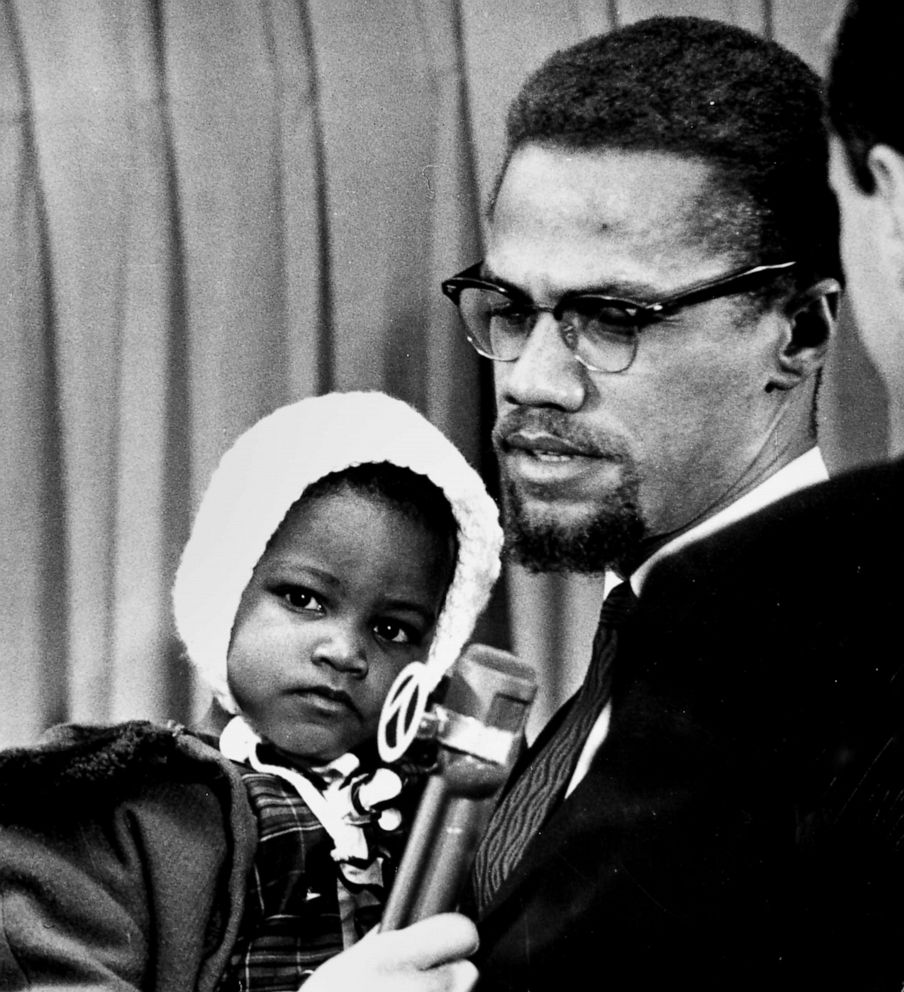
Shabazz says her mother never spoke to her six daughters about the assassination of their father, instead raising them in a “bubble of love.”
“I knew about my father. I knew about daddy. I knew about my mother's husband. But I had never learned about Malcolm X the icon, and in college, I did”. There, Shabazz remembers “taking a course on The Life and Times Malcolm X, and I learned about all of the injustices.”
“It just made me think of how alone he must have felt and the significant sacrifice that he made,” she said in the ABC News special that was released Friday on Hulu.
Two men who were convicted of killing Malcolm X – Aziz Muhammad and Khalil Islam – were exonerated in November 2021 following a re-examination of the case by the New York District Attorney’s Office, after being asked to look into it by civil rights attorneys David Shanies and Deb Francois and the Innocence Project.
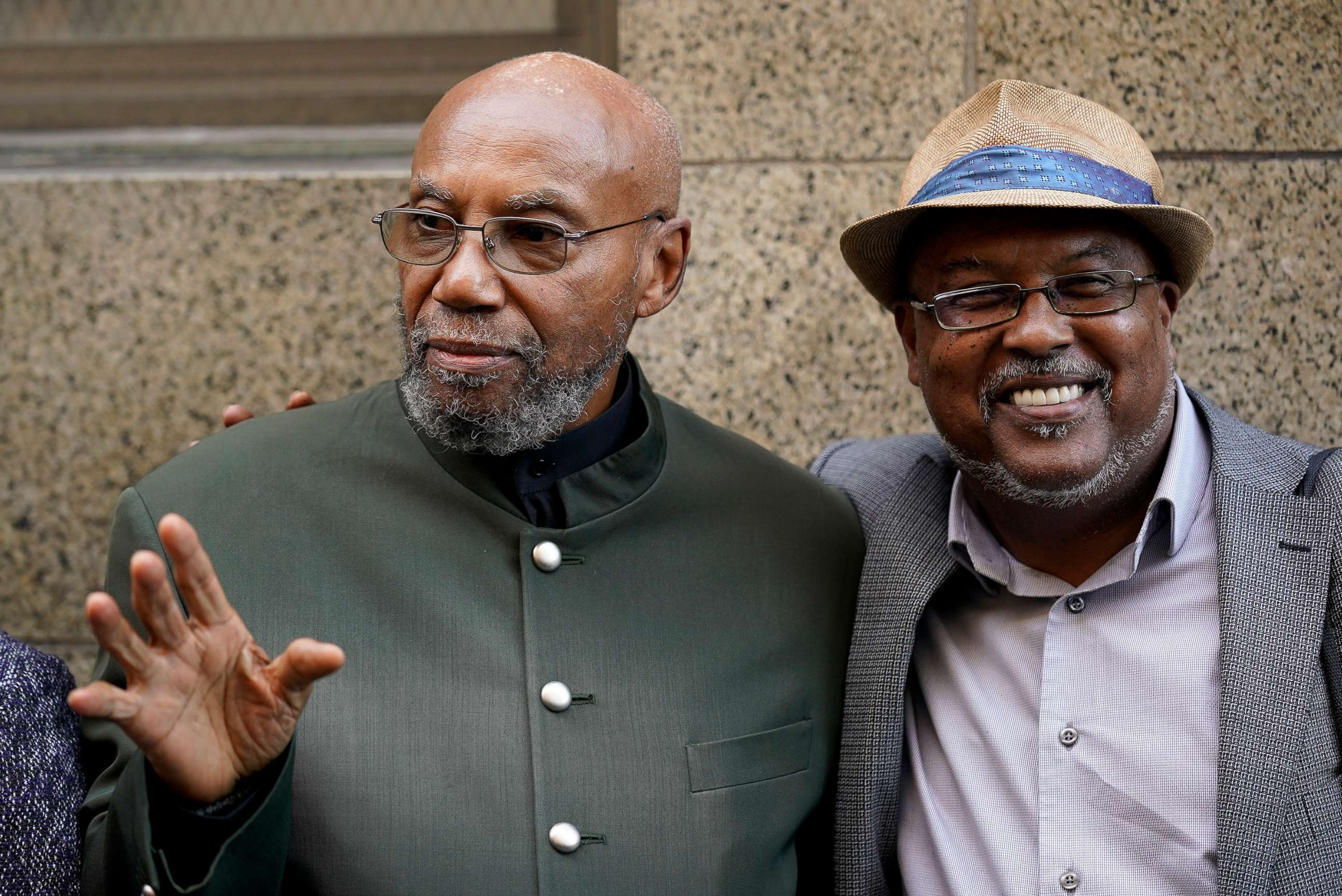
Muhammad, who was known as Norman 3X Butler, served 20 years and was released on parole in 1985. Islam, who was known as Thomas 15 X Johnson, served 22 years in prison and was released 2 years after Aziz. He died in 2009.
Several gunmen fired at Malcolm X, according to police, but only one – Talmadge Hayer – was caught.
Hayer, now known as Mujahid Abdul Halim, confessed and testified at trial that Aziz and Islam were not involved in the killing. In the late 1970s, he signed an affidavit naming four other men who he said were involved in planning and carrying out the murder.
“There was so many who said that these men who were serving time were not the actual people who pulled the trigger,” Shabazz said.
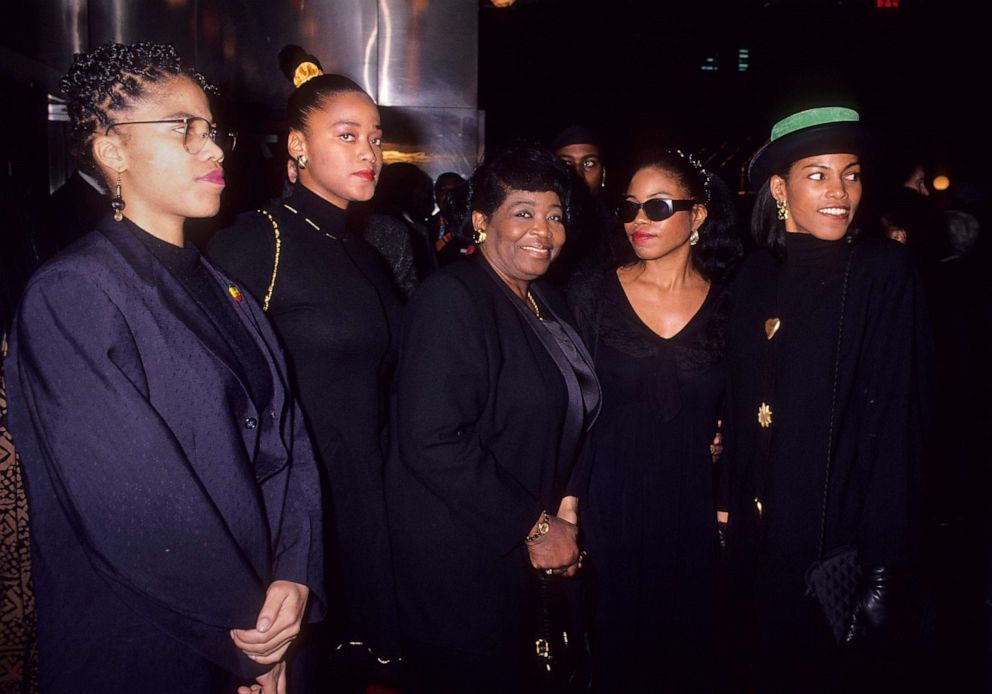
But the case was not reopened until 2020 when then Manhattan District Attorney Cyrus Vance Jr. was presented with a documentary that raised questions about the convictions. The 2020 Netflix documentary would later reinvigorate public interest in the case. “Who Killed Malcolm X?” follows the work of independent historian Abdur-Rahman Muhammad, who spent decades investigating the killing.
“Over time it became something of a crusade for justice, not just a cold, scholarly matter,” Muhammad told ABC News. “And I think that's what kept me going.”
Vance moved to vacate the convictions of Aziz and Islam in November 2021 citing "newly discovered evidence and the failure to disclose exculpatory evidence."
Vance criticized the way law enforcement handled the case and said the investigation revealed that certain witnesses, acting under orders from then-FBI Director J. Edgar Hoover, were instructed not to reveal they were FBI informants.
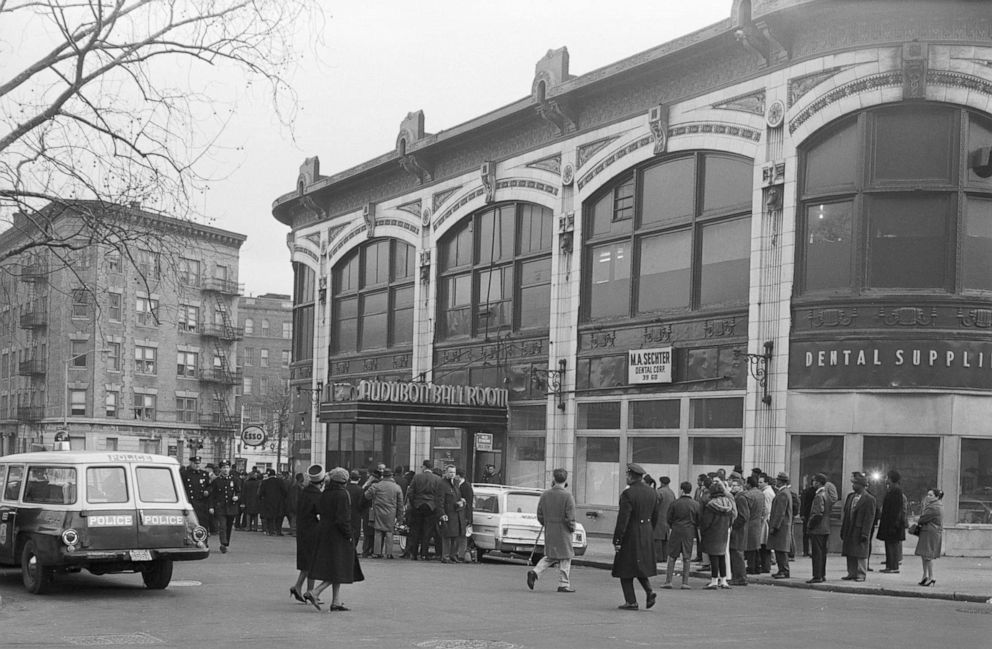
The FBI also failed to disclose documents that cast doubt on the involvement of Aziz and Islam, including information from eyewitnesses about the description of the suspects.
Ben Crump, an attorney for members of the family of Malcolm X, said a congressional commission should launch an independent investigation into the murder.
“Let's finish the book and get to who was really responsible for the assassination,” he told ABC News’ "Soul of a Nation."
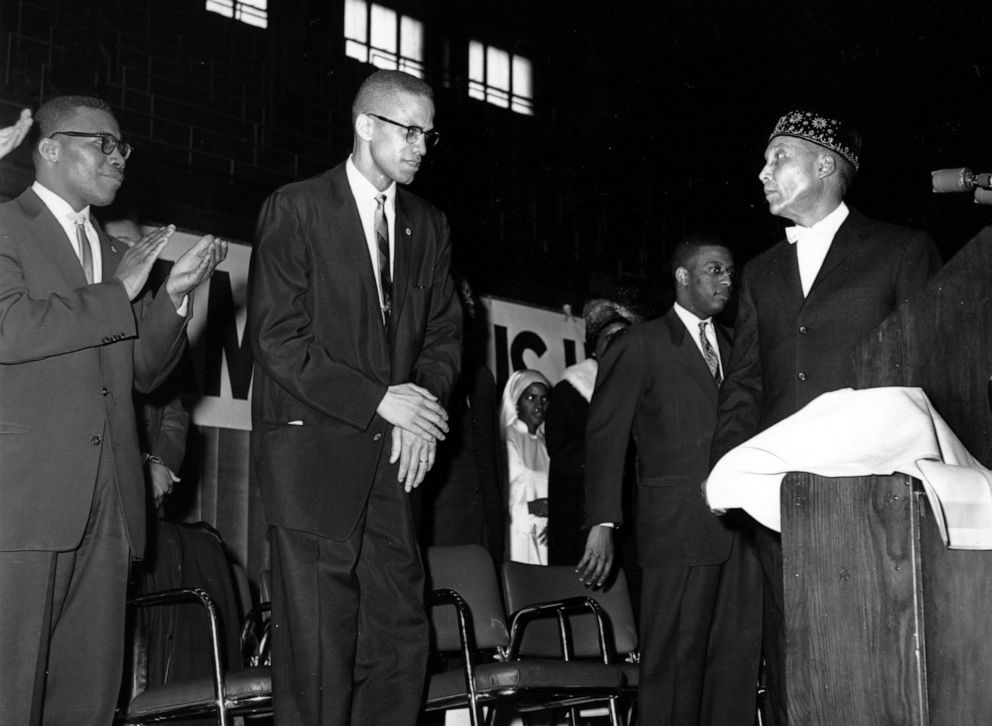
Malcolm X rose to the national spotlight as a minister and spokesman for the Nation of Islam, although he left the group before he died due to tensions with its leader Elijah Muhammad.
His popularity as a leader in the Black nationalist movement, calling for racial separation from whites, was a threat to the establishment. He and others in the group were monitored by the FBI and NYPD for years.
Abdur-Rahman Muhammad said that while some civil rights leaders like Dr. Martin Luther King advocated for integration, Malcolm X believed that “white American racism, the legacy of racial oppression in this country, would never allow Black people to be full-broaded citizens.”
After Malcolm X broke with Nation of Islam, his perspective on Dr. King and the civil rights struggle began to shift. “He began to explore other philosophies and other approaches to the race question,” Muhammad added.
“Malcolm X was a unique leader in the sense that he brought to the American stage a very harsh and blunt critique of American racism,” he added.
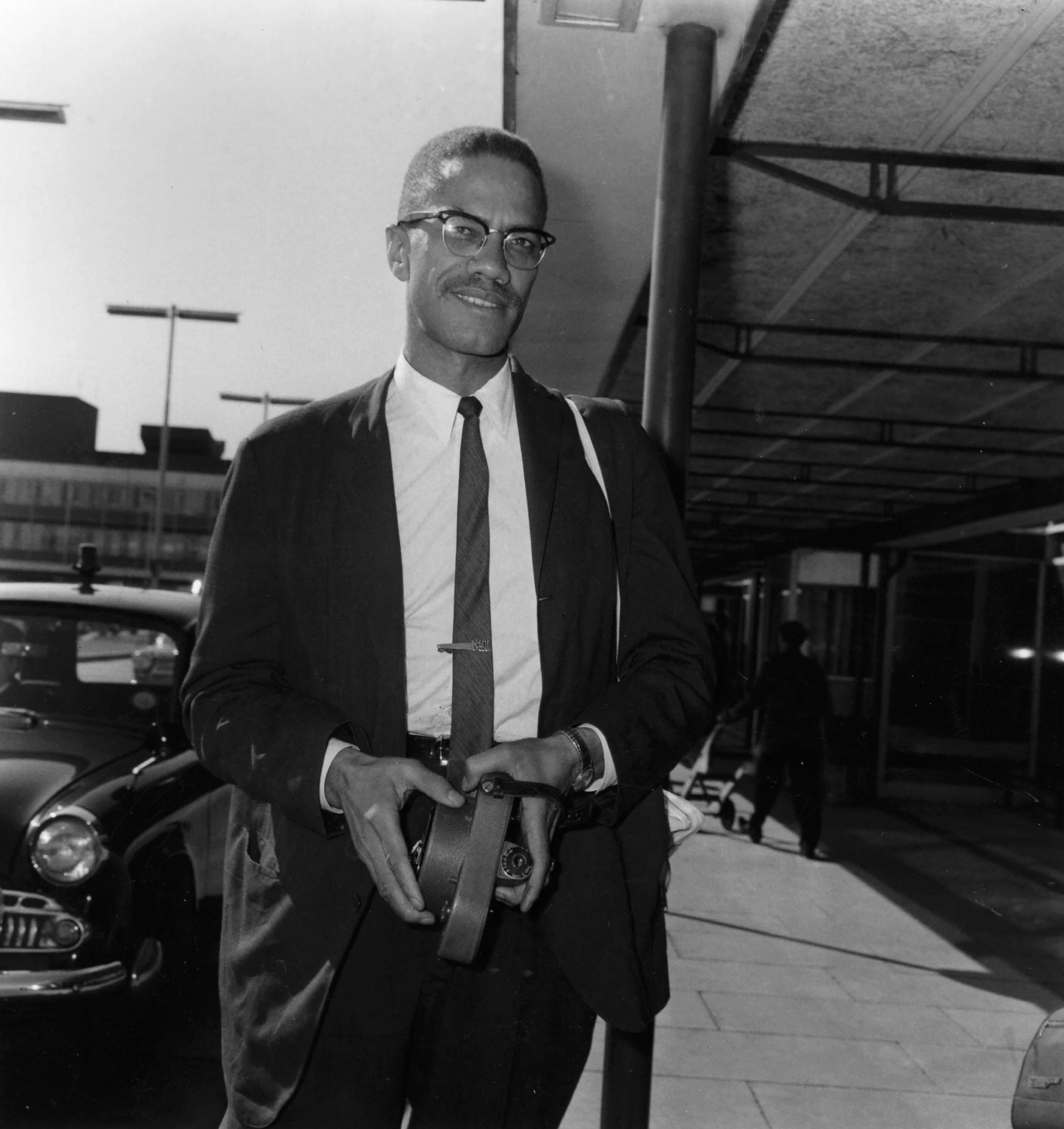
Shabazz, who is co-chairperson of The Malcolm X and Dr. Betty Shabazz Memorial and Educational Center, is dedicated to keeping her father’s legacy alive.
Asked why her father was viewed as a threat, Shabazz said, “Because he held a mirror up to it all – the injustices.”
“He spoke truth to power and especially during a time when there was no one doing it,” she said.
ABC News' Wendy Krantz, Taigi Smith, Margie Merritt, Sabina.Ghebremedhin and Ely Brown contributed to this report.




